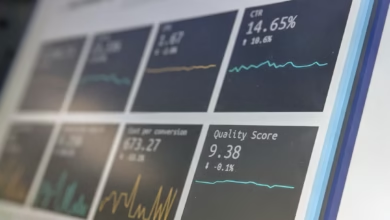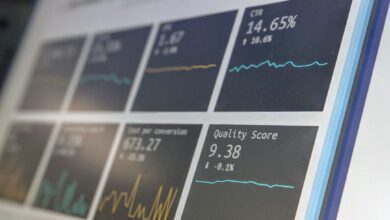Mastering Arbitrage Trading: Strategies to Profit from Price Discrepancies in Stock, Forex, and Crypto Markets

In the fast-paced world of trading, where price fluctuations can occur within seconds, arbitrage trading emerges as a powerful strategy that savvy investors use to exploit price differences across various markets. Whether in stock trading, forex trading, or even crypto trading, the essence of arbitrage lies in identifying and capitalizing on these disparities to secure profits. As markets become increasingly interconnected, opportunities for arbitrage abound, making it crucial for traders to understand the nuances of this technique.
In this article, we will delve into the fundamental concepts of arbitrage trading, providing a comprehensive overview of the opportunities available in stock, forex, and crypto markets. We will explore key trading strategies that enhance the effectiveness of arbitrage, from day trading to high-frequency trading techniques. Additionally, we will address the importance of risk management, focusing on how traders can balance leverage and market analysis to ensure sustainable profits in an often volatile environment. Join us as we uncover the intricacies of arbitrage trading and equip you with the knowledge to navigate this dynamic landscape.
- 1. Understanding Arbitrage Trading: A Comprehensive Overview of Opportunities in Stock, Forex, and Crypto Markets
- 2. Key Trading Strategies for Effective Arbitrage: From Day Trading to High-Frequency Trading Techniques
- 3. Risk Management in Arbitrage Trading: Balancing Leverage and Market Analysis for Sustainable Profits
1. Understanding Arbitrage Trading: A Comprehensive Overview of Opportunities in Stock, Forex, and Crypto Markets
Arbitrage trading is a strategy that allows traders to exploit price discrepancies across different markets to generate profit. By understanding the dynamics of various trading environments—including stock, forex, and crypto markets—traders can identify opportunities that arise from inefficiencies in pricing.
In stock trading, arbitrage can occur when the same stock is priced differently on various exchanges. Traders can buy the stock at a lower price on one exchange and simultaneously sell it at a higher price on another, capitalizing on the price difference. This requires a keen understanding of market dynamics and swift execution, often facilitated by algorithmic trading or high-frequency trading strategies.
In the realm of forex trading, arbitrage opportunities are frequently observed due to fluctuations in currency pairs. These discrepancies can occur between different brokers or trading platforms, making it essential for forex traders to conduct thorough market analysis and utilize risk management techniques to safeguard their investments. Options trading and futures trading can also present arbitrage possibilities, especially when underlying assets deviate in price from their derivative counterparts.
The cryptocurrency market, known for its volatility, is another fertile ground for arbitrage trading. Crypto trading allows investors to take advantage of price differences across various exchanges, often involving rapid trades that can yield substantial profits. Day trading and swing trading strategies can be employed to capture these fleeting opportunities, while traders must remain vigilant about trading psychology to manage the inherent risks.
Moreover, arbitrage isn't limited to traditional assets; it extends to commodities trading, index trading, and even derivatives trading. Energy trading, in particular, can present unique arbitrage situations due to fluctuating supply and demand dynamics. Trading strategies such as scalping, copy trading, and social trading can also incorporate arbitrage techniques, allowing traders to leverage insights from others in the market.
As arbitrage trading often involves margin trading and leverage trading, traders must be cautious and employ robust risk management strategies to minimize potential losses. Technical analysis and fundamental analysis play crucial roles in identifying potential arbitrage opportunities, ensuring that traders make informed decisions based on market conditions.
In conclusion, understanding arbitrage trading across stock, forex, and crypto markets opens up a world of opportunities for traders. By leveraging online trading platforms and employing effective trading strategies, traders can capitalize on price differences and enhance their profitability in a competitive trading landscape.
2. Key Trading Strategies for Effective Arbitrage: From Day Trading to High-Frequency Trading Techniques
Arbitrage trading involves capitalizing on price discrepancies across various markets, and it can be executed through several key trading strategies. Understanding these strategies is crucial for any trader looking to profit from market inefficiencies.
One of the most common approaches to arbitrage trading is day trading. This strategy involves entering and exiting trades within the same day, allowing traders to exploit short-term price movements. Day trading can be particularly effective in volatile markets, such as forex trading or crypto trading, where rapid price changes create opportunities for profit. Traders often rely on technical analysis to identify entry and exit points during the trading day.
Swing trading is another effective strategy for arbitrage. It focuses on capturing price swings over a period of days or weeks. Swing traders analyze market trends and use both technical and fundamental analysis to make informed decisions. This approach can be particularly beneficial in commodities trading or index trading, where market conditions may vary over a more extended period.
In the realm of high-frequency trading, algorithmic trading plays a significant role. High-frequency trading techniques utilize complex algorithms to execute multiple trades at lightning speed, taking advantage of tiny price differences that exist for only fractions of a second. This method requires advanced technology and infrastructure, making it more suitable for institutional traders or those using online trading platforms with robust capabilities.
Scalping is another fast-paced trading strategy that aligns with arbitrage principles. Scalpers aim to make small profits from numerous trades throughout the day, often holding positions for just seconds or minutes. This requires a keen understanding of market dynamics and effective risk management to avoid significant losses.
For those interested in a more automated approach, copy trading and social trading allow traders to follow and replicate the strategies of successful traders. While not traditional arbitrage strategies, these methods can enable individuals to benefit from the insights of experienced traders in various markets, including derivatives trading and binary options.
Lastly, leveraging margin trading can amplify the profits from arbitrage opportunities. However, it’s essential to employ sound risk management practices, as the use of leverage can also magnify losses.
In summary, effective arbitrage trading requires a deep understanding of various trading strategies, whether it's day trading, swing trading, or high-frequency trading techniques. By utilizing market analysis, technical analysis, and trading psychology, traders can better navigate the complexities of arbitrage trading across diverse markets, including forex, stocks, and commodities.
References:
– Author, A. (Year). Title of the source. URL
– Author, B. (Year). Title of the source. URL
– Author, C. (Year). Title of the source. URL
3. Risk Management in Arbitrage Trading: Balancing Leverage and Market Analysis for Sustainable Profits
Risk management is a critical component of successful arbitrage trading, especially when aiming to exploit price discrepancies across various markets. Whether you are engaged in stock trading, forex trading, or even crypto trading, understanding how to balance leverage with thorough market analysis is essential for sustainable profits.
One of the primary risks in arbitrage trading arises from the use of leverage. Leverage trading can amplify profits but also increases the potential for significant losses. Traders must carefully consider their margin trading strategies and ensure they are not over-leveraging their positions. Effective risk management involves setting strict stop-loss orders and optimizing position sizes based on individual risk tolerance. This helps mitigate losses while allowing traders to take advantage of price inefficiencies.
In addition to managing leverage, conducting rigorous market analysis is crucial. Employing both technical analysis and fundamental analysis can provide insights into market trends and price movements. Technical analysis involves studying historical price patterns and indicators to make informed trading decisions, while fundamental analysis focuses on economic factors that may influence market prices. By combining these two approaches, traders can better identify arbitrage opportunities and understand the underlying risks associated with them.
Trading psychology also plays a vital role in risk management. The emotional aspects of trading can lead to impulsive decisions that deviate from established trading strategies. Traders must cultivate discipline and maintain a clear focus on their risk management protocols. This includes recognizing when to exit a position, regardless of the potential for profit.
Utilizing online trading platforms that offer features for risk management, such as automated stop-loss orders and portfolio diversification tools, can further enhance a trader's ability to manage risk effectively. Strategies like high-frequency trading or algorithmic trading can also be employed to capitalize on fleeting price discrepancies while adhering to risk management guidelines.
In summary, successful arbitrage trading hinges on a robust risk management framework that balances leverage and comprehensive market analysis. By implementing disciplined trading strategies and leveraging the right tools, traders can navigate the complexities of arbitrage opportunities while safeguarding their investments.
In conclusion, arbitrage trading presents a compelling opportunity for traders looking to exploit price discrepancies across various markets, including stock trading, forex trading, and crypto trading. By understanding the nuances of this strategy, traders can effectively implement diverse trading strategies such as day trading, swing trading, and high-frequency trading to maximize their profits. However, successful arbitrage trading requires careful risk management, balancing leverage and thorough market analysis to ensure sustainable gains.
As you explore the world of arbitrage, consider the importance of trading psychology and the application of both technical and fundamental analysis. Whether you are engaging in algorithmic trading, copy trading, or social trading, it is essential to stay informed about market trends and fluctuations. By adopting a disciplined approach and using the right online trading platforms, you can navigate the complexities of derivatives trading, commodities trading, and even energy trading with confidence.
Ultimately, the key to mastering arbitrage trading lies in your ability to adapt and refine your trading strategies, enabling you to seize opportunities as they arise. By embracing a proactive mindset and leveraging the vast array of tools available, you can position yourself for success in the dynamic landscape of online trading.
References:
[Include relevant sources and citations here]




